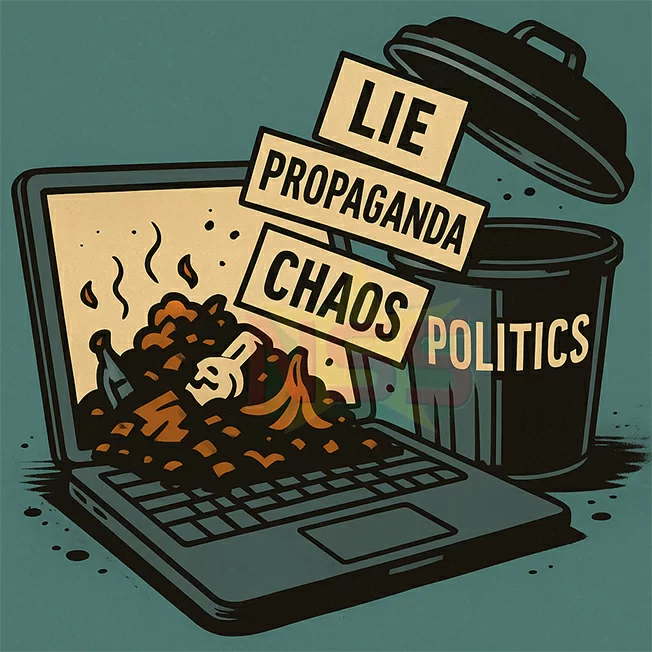Social media platforms are increasingly flooded with so-called news sites that peddle opinions and political propaganda under the guise of journalism. These platforms, often masquerading as legitimate online news outlets, lack any journalistic foundation. They are the digital weeds in the political garbage dump: noisy, toxic, and deadly to the quality of public discourse. These sites proliferate across Facebook, TikTok, and WhatsApp, spreading not news but misinformation—deception packaged as information. They operate without editorial oversight, physical addresses, or identifiable authors, ensuring no one is held accountable for their content. To appear credible, they occasionally mix in ‘normal’ news stories, but their primary output is an endless stream of politically biased, strategically driven opinions. Their goal is not to inform but to infect. Behind the scenes, shadowy groups pull the strings—political actors sowing chaos, promoting division (often along ethnic lines), and eroding public trust in legitimate media. Their fake news consists of fabricated quotes, doctored photos, outdated images presented as current, and so-called ‘revelatory’ stories without a single verifiable source. Their message is like poison in honey: enticing but deadly to public trust. The societal damage is immense. Misinformation undermines the foundation of democracy, replacing dialogue with polarization and threatening to drown honest journalism in a sea of lies. Facts are manipulated, emotions are exaggerated, and citizens can no longer discern truth from falsehood. What appears to be freedom of expression is, in reality, organized deception. Combating this digital pollution requires decisive action—not censorship, but accountability. It falls to genuine media and professional journalism to expose these ghost platforms and arm the public against their influence. This is not about limiting freedom but protecting it. Freedom of speech and press freedom are enshrined in constitutions and international treaties like the BUPO Convention and the Inter-American Convention on Human Rights. However, freedom is never absolute; it exists within the boundaries of truth, responsibility, and ethics. Dutch scholar H.A. Visser, in his research on the future of journalism, argues that true press freedom can only be guaranteed by independent editorial teams operating within professional and moral frameworks. This is the line between freedom and abuse. What is urgently needed now is transparency: a public list or index of accredited news media that adhere to verifiable sources, editorial responsibility, and journalistic codes. Those who operate outside these standards do not belong in journalism. Real journalism demands time, effort, and professionalism—dedication, integrity, and accountability. Fake news costs nothing but the trust of society. Society itself also has a role to play. Citizens must relearn what news is, who produces it, and what standards it should meet. They should scrutinize publishers, check sources, and avoid sites that scream, accuse, or incite without ever correcting themselves. Freedom of expression is not a license for chaos. For those who poison the news, poison democracy.
